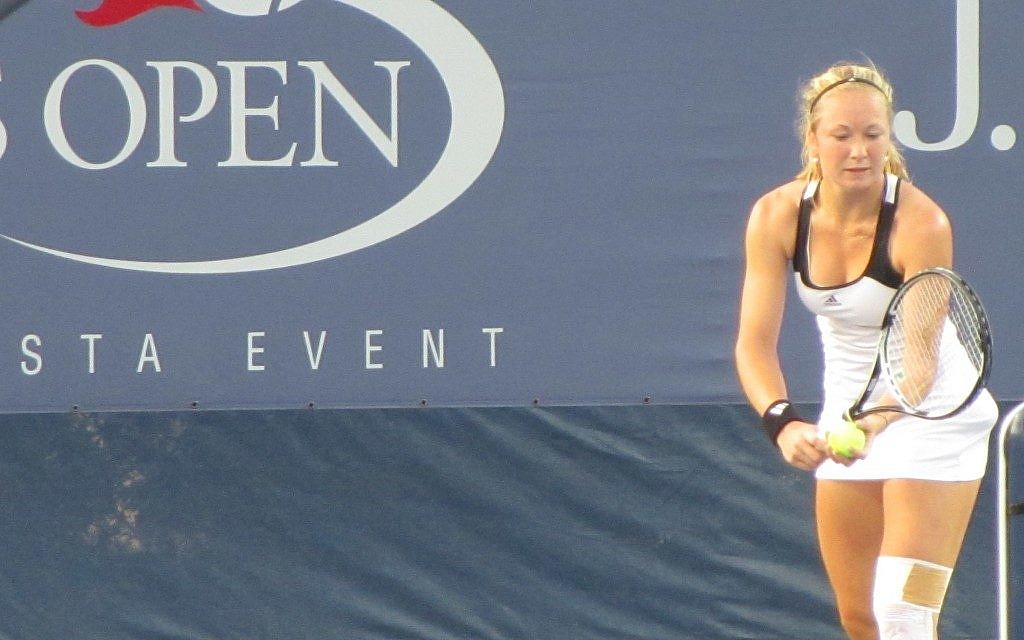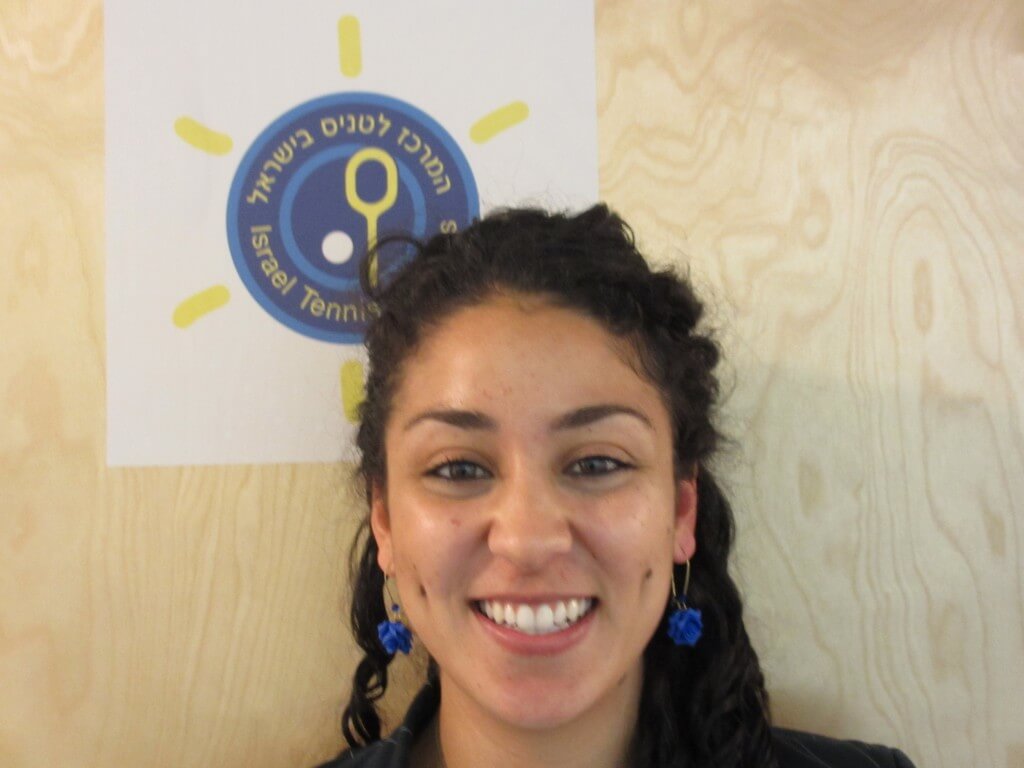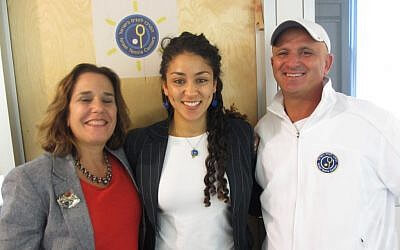Though baseball is a ‘Jewish sport’, its roots in Israel are still taking hold. Team Israel is taking to the baseball diamond this week in South Florida in a bid to participate in the March 2013 World Baseball Classic. How did the blue and white players get there, and what are their chances?

In the baseball world, South Florida is associated with Major League Baseball’s spring training. And September is traditionally the season of pennant races and league championships. But starting this September 19, Roger Dean Stadium in Jupiter, Florida [90 minutes north of Miami and half an hour south of where the New York Yankees train each March] will host teams from France, Spain, South Africa and Israel — all part of the World Baseball Classic (WBC) qualifying round. There, a handful of well-known Jewish former Major League players will on hand as they help Israel qualify for a spot in the March 2013 World Baseball Classic.

While not as well known as Major League Baseball’s World Series or even the Little League Baseball World Series, the World Baseball Classic is considered to be the premier international baseball tournament. It is run by WBCI (World Baseball Classic, Inc.) and is sanctioned by the International Baseball Federation. Major League Baseball and the Major League Baseball Player’s Association together created the event, which has thus far been held twice. Team Japan, the reigning World Baseball Classic Champion, won the tournament in both 2006 and 2009. More than 1.5 million fans from all over the world have attended the tournament to date.
Between September and November, four qualifying tournaments will be held in various locations around the world. Host cities include Jupiter, FL (USA), Regensberg, Germany, Panama City, Panama, and New Taipei City, Taiwan. Six games will be played at each location, following a modified double elimination format. Teams competing include Canada, Great Britain, Czech Republic, Panama, Brazil, Colombia, Nicaragua, Philippines, Thailand, New Zealand and China Taipei.
In March 2013, the first round of the main tournament will get underway in Phoenix, Arizona. The second round will take place in Miami, Florida, and the championship round will be held at AT &T Park in San Francisco, California.
Israel is participating in its first WBC. The pool of potential players expands beyond actual citizens of the State of Israel since, according to WBC tournament rules, countries are allowed to field players who are eligible for citizenship in a given country. In Israel’s case, anyone eligible for citizenship under the Law of Return is permitted to try out for Israel’s team. This may be good news for the Jewish State — given the overall weak popularity of baseball in Israel, and Israel’s relatively poor record of producing homegrown baseball standouts.
While an article on the Israel Baseball League website, “Baseball in the Times of Our Forefathers,” satirically suggests that baseball has been played in Israel since biblical times, baseball was likely introduced to Israel on July 4, 1927, at the Sephardic Orphanage in Jerusalem when the governess of the orphanage handed out baseball equipment to her charges. Later, in the 1970s, immigrants from North America began playing baseball upon their arrival in Israel.
Baseball has been slow to catch on in Israel. Between 1,000 and 3,000 people currently play in baseball and softball leagues in Israel, though few regulation sized fields exist
Baseball has, nonetheless, been slow to catch on in Israel. Between 1,000 and 3,000 people currently play in baseball and softball leagues in Israel, though few regulation sized fields exist.
In December 1986, the Israel Association of Baseball was formed to create an infrastructure and promote baseball in Israel. In July 2005, the Israel Baseball League was formed, and in June 2007, six teams kicked off the inaugural season of the IBL.
The IBL existed as a league for only one season. The Israel Association of Baseball (IAB) currently exists to promote baseball in Israel. There are currently five leagues with teams playing in sixteen centers from Tel Aviv to Beit Shemesh, Ra’anana, Jerusalem and Even Yehuda. The IAB trains coaches and umpires, hosts coaches and teams from overseas, and sends youth teams to tournaments around the world.
Haim Katz, the IAB President, is passionate about baseball, a game he calls “the most Jewish sport in North America.” Katz, 59, moved from Pittsburgh, Pennsylvania to Israel in 1978. His love of baseball was “handed down from my father,” reports Katz; he traces his interest in baseball to 1960, the year he attended the World Series. He attended Game 2 when his Pittsburgh Pirates lost to the New York Yankees, 16-3. He playfully notes that he is still a Pirates fan.
Katz says he and the IAB seek to increase awareness of Israel baseball in the US and Israel, try to engage North American Jews in Israel baseball, and build bridges with the US and Israel.
“We like to put Israel in a more positive light — not just to talk about nuclear bombs, but to show positive things about Israel — we have pretty much achieved our objective so far.”
Katz was extremely proud and excited when he was approached by the World Baseball Classic to “present motivation and a potential roster” for a team to potentially participate in the 2012 qualifiers. “Somewhat to our surprise, they accepted us!” notes Katz half jokingly. “We would have preferred to play the tournament in Israel, but we have no field; we are working on it!” (Katz is referring to an initiative to build a $5 million field/ballpark in Ra’anana. The city has reportedly agreed to provide land and the Israel Sports Authority will pay $1.5 million; the IAB would be responsible for the rest of the funds.)
In assembling the team for the WBC tournament in Florida, Katz has tried to offer opportunities to up and coming Israeli players, while also including well-known, Jewish former Major Leaguers.
Brad Ausmus, 43, who spent 18 years as a major league catcher and who currently works in the San Diego Padres organization, will serve as manager. While the official roster has not yet been announced, former major leaguers Shawn Green and Gabe Kapler have, according to Ausmus, “agreed to serve in some type of player/coach capacity.”
The 39-year-old Green, who played for four major league teams and hit 328 home runs in his 15 year career, will likely serve as the team’s hitting coach. Kapler, 36, played for 12 years and won a World Series with the 2004 Boston Red Sox; he retired in 2010.
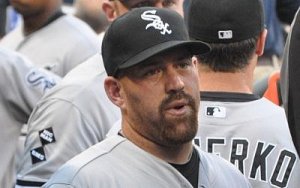
Other players rumored to be considering roles with the team (either for the qualifiers, or in March 2013, should Israel advance to the tournament) include: Milwaukee Brewers outfielder Ryan Braun, Chicago White Sox third baseman Kevin Youkilis, Texas Rangers second baseman Ian Kinsler, New York Mets first baseman Ike Davis, San Diego Padres right-handed pitcher Jason Marquis, Boston Red Sox Catcher Ryan Lavarnway, and New York Mets infielder Josh Satin. There has recently been some online talk about granting a spot to Adam Greenberg, 31, who, in 2005 as a member of the Chicago Cubs was hit in the head by the first pitch of his only major league appearance. Former Major Leaguer Art Shamsky, who played for the 1969 “Miracle Mets,” will serve as Israel’s ambassador to the World Baseball Classic Qualifiers.
Manager Ausmus, who grew up in a not very Jewishly connected family in Connecticut (USA), was contacted by Haim Katz over a year ago, via an email to the San Diego Padres organization. He, Peter Kurz, the Secretary General of the IAB, Green and Kapler met. Ausmus soon after agreed to be part of Team Israel.
“When I was appointed manager, it became very clear that I needed to visit Israel, since I never had. At the end of May, my wife and I spent about a week in Israel, traveling to tourist sites, seeing baseball facilities, meeting some of Israel’s baseball players. I loved floating in the Dead Sea, surfing in the Mediterranean Sea at Tel Aviv (and bragging about it to my surfer friends in Tel Aviv), and going to Jerusalem.
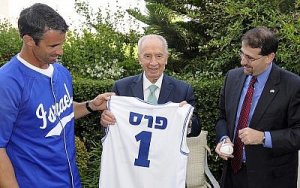
“Jerusalem just amazed me — the history, the ruins, the vitality of the people in Jerusalem is phenomenal — you don’t feel this type of energy anywhere else in the world. I was awestruck by my visit there. And my meeting with President Peres, arranged by the US Ambassador, Daniel Shapiro, was amazing — he is an impressive man — I get the feeling he could slide in to any situation with people of any background and make them feel comfortable.”
“We are extremely fortunate to have someone of Brad’s caliber to manage the team. His skills and knowledge of baseball are top rank — and the team has top talent. Brad sees the bigger picture here, he is a pleasure to work with, and he is a mensch!” observes Katz.
Some 18 members of the team coming from Israel are playing several exhibition games in the Miami area on September 11 and 12. The rest of the team will join on September 13 and play several more exhibition games in South Florida. Team Israel’s first tournament game will be on September 19 against South Africa and it will play a second game on Friday, September 21, against either France or Spain, with possible games on Saturday or Sunday if it advances.
(Source: http://www.timesofisrael.com

